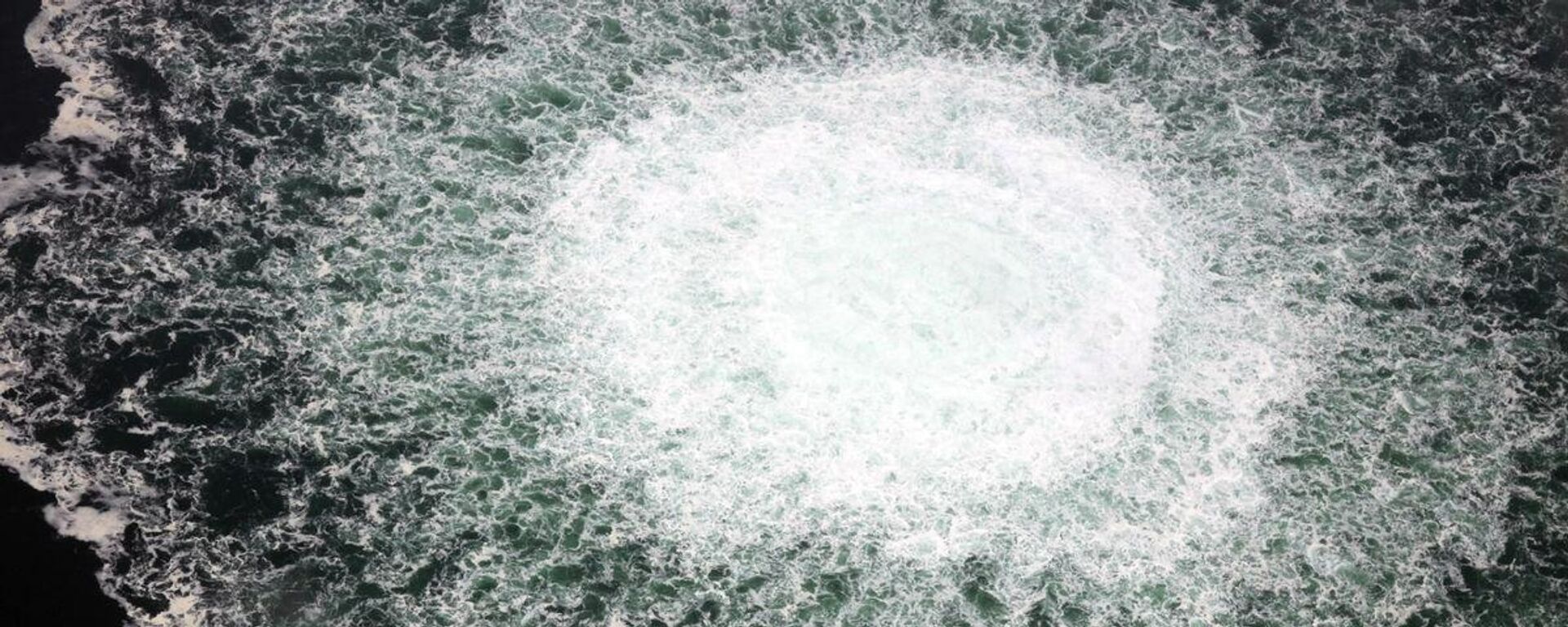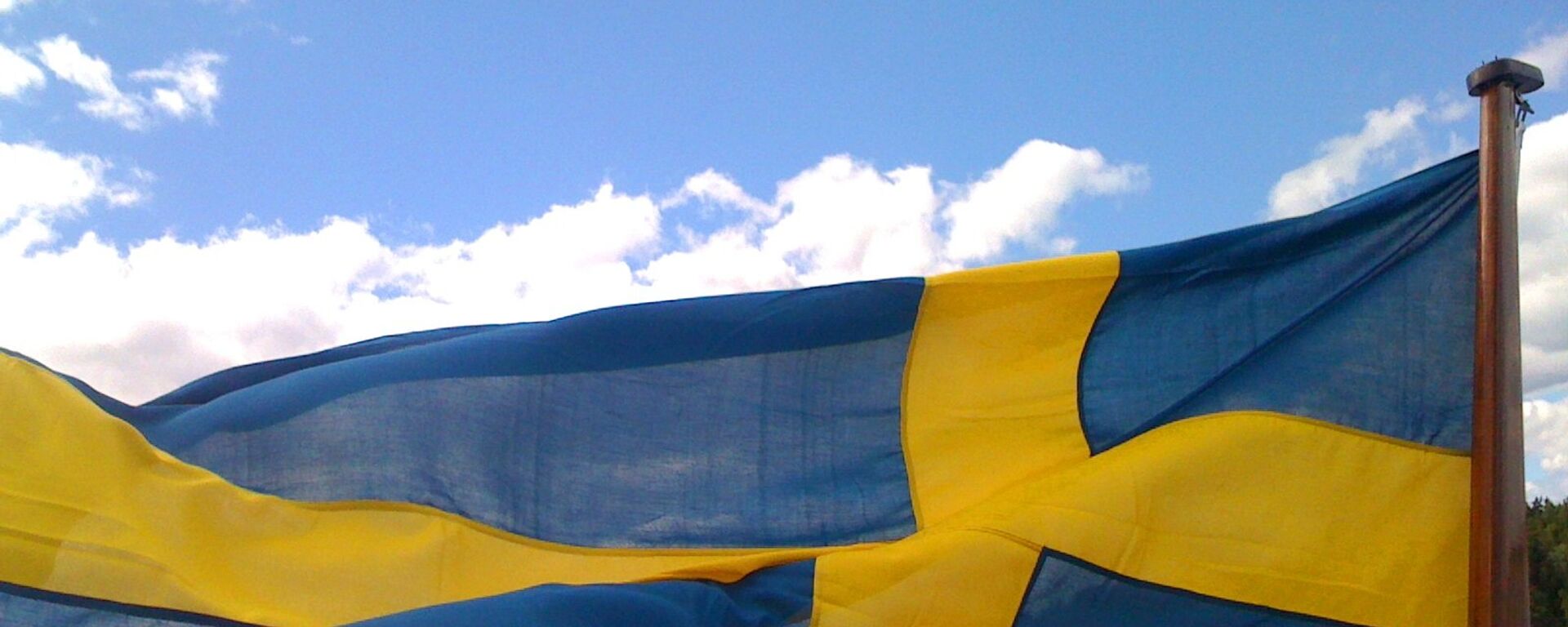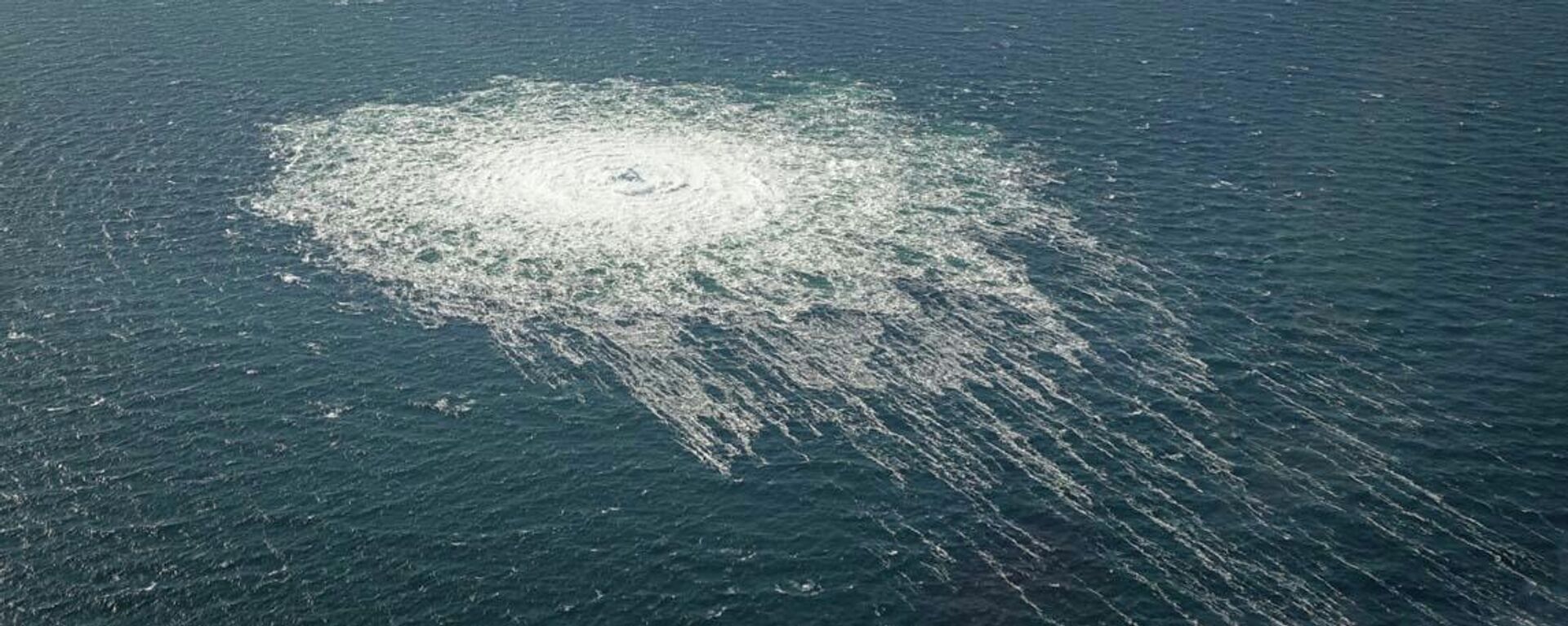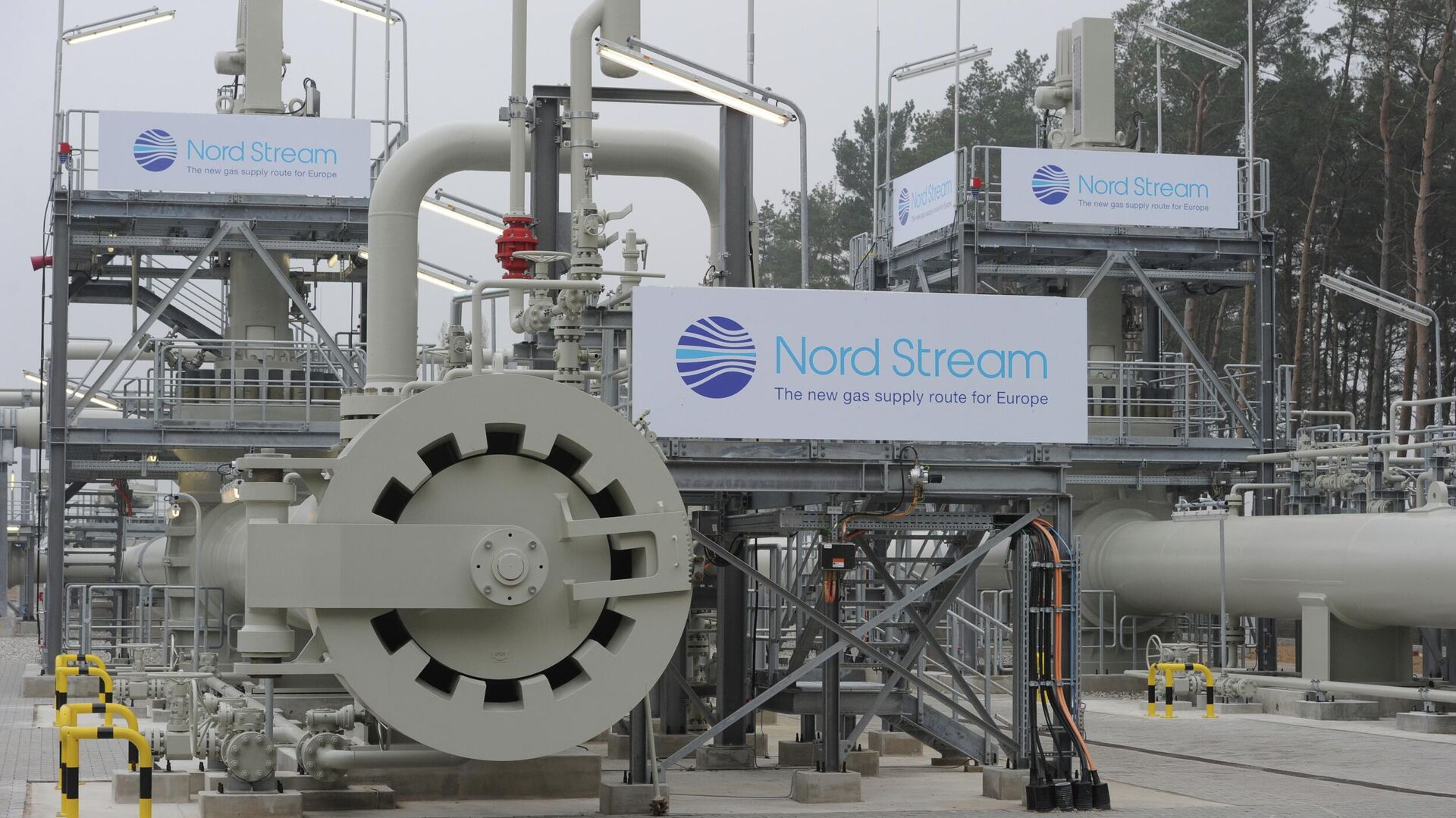https://sputnikglobe.com/20221228/western-media-admit-ukraine-had-a-motive-to-axe-nord-stream-1105846286.html
Western Media Admit Ukraine Had a Motive to Axe Nord Stream
Western Media Admit Ukraine Had a Motive to Axe Nord Stream
Sputnik International
European investigators remain silent after wrapping up their probes into the Nord Stream sabotage attack. It wasn't Russia, they admit. So, who is the culprit?
2022-12-28T09:54+0000
2022-12-28T09:54+0000
2023-04-12T17:15+0000
nord stream sabotage
us
opinion
russia
ukraine
nord stream
poland
natural gas
liquefied natural gas (lng)
sweden
https://cdn1.img.sputnikglobe.com/img/07e6/07/08/1097116390_0:130:2501:1536_1920x0_80_0_0_ebd8c7b47b157e7bff7f2d0ee239f4e2.jpg
The Nord Stream pipelines story caught the headlines again on Monday, with the American mainstream newspaper alleging that Nord Stream AG had begun pricing out the cost to repair the pipe and restore gas flow.Dubbing the September sabotage attack "a wartime mystery," the media raised the question of why, if Russia bombed its own pipelines – as Western press has asserted to its readers for months, it would begin the expensive work of repairing them.The Nord Stream infrastructure consists of four pipelines. Nord Stream 1, a pair of offshore natural gas pipelines running under the Baltic Sea from Russia to Germany that became operational in 2011. Nord Stream 2 envisaged doubling the annual capacity of the initial project to 110 billion cubic meters. It was completed in September 2021, but Germany hesitated to certify it being under heavy pressure from the US, which opposed the Russia-led project from inception. Eventually, German Chancellor Olaf Scholz suspended its certification on February 22, 2022. On September 26, three of the four pipelines were blown up by unknown perpetrators.The newspaper went on to discuss who could benefit from the damage. The explosion did not "neatly" benefit Russia, as it left Moscow relying on pipelines running through Ukraine and continuing to pay transit fees to Kiev, the media said. In addition to that, Russia faces hefty repair costs, it noted. Moreover, evidence collected by European investigators doesn't point to Russia, either.The media also quoted reasoning which made Westerners believe that Moscow could have a motive: the sabotage all but guaranteed that gas prices would be "uncomfortably high" for Europeans until spring.However, financial experts earlier observed that the spike in gas prices in the wake of the attack was short lived: the market digested the shock relatively quickly. The crux of the matter is that sanctions-related problems with Nord Stream 1's maintenance had already crippled Moscow's gas deliveries to Europe by the beginning of September.Vladimir Putin's offer to resume gas supplies to Europe through the intact part of the Nord Stream 2 gas pipeline in early October and the Russo-Turkish effort to create a new gas hub to deliver the commodity to the Old Continent further obliterate the media's "Russia-had-a-motive" assumption. When it comes to the argument that Moscow has stealth submarines in the Baltic Sea and dive teams that specialize in seabed operations, one could easily object by pointing out that many states do.'No Shortage of Adversaries'At the same time, the newspaper acknowledged that the pipelines "had no shortage of adversaries." In particular, it quoted a 13-page letter to Poland written by Ukrainian regulators as part of a coordinated effort to stop Nord Stream 2 from coming online. The letter, obtained by the newspaper, claimed that Nord Stream 2 "will negatively impact on Ukraine’s national security."Actually, it was Kiev's economic interests which were threatened: according to the media, Ukraine received an average of $1 billion a year in transit fees for Russia's pipelines heading to Europe through the country. Attacking the pipeline may have made financial sense for Ukraine, the newspaper noted, but added that Kiev's capability to carry it out is "unclear."Remarkably, at the very beginning of the article, the authors quoted analysts as saying that the pipelines were vulnerable to even the most rudimentary form of sabotage and that underwater surveillance is nearly impossible in the area. Some analysts even went so far as to suggest that one diver would be enough to set an explosive device. So, was it really beyond Ukraine's capabilities to carry out the attack?Meanwhile, Ukraine and Poland were the first to accuse Russia of the blasts, with no evidence presented, the media remarked.Strange Silence of Western Intel & InvestigatorsOn the other hand, for a European Union or NATO member to blow up the key piece of energy infrastructure would have significant consequences, undermining trust within the two blocs, and would be seen as an "act of war," the media continued.Still, some prominent Western media pundits and academics almost immediately pointed the finger at the US, referring to the fact that Washington had wanted to get rid of the pipelines for years and that US liquefied natural gas (LNG) was poised to benefit the most from the damage. They also cited US Secretary of State Antony Blinken's bizarre remark that the blast created "tremendous opportunities" for Europe.The investigations into the incident have been mired in controversy. First, Russia wasn't invited to participate over the evidence-free assumption that it could be "complicit" in the sabotage. Second, Sweden, Denmark, and Germany kicked off individual investigations into the attacks, triggering speculations about the lack of unity and mistrust in the Western camp.So far, neither American nor European intelligence agencies have publicly shared any data that they might have collected, the media pointed out, adding that European investigators are keeping it on the hush, too.The strange silence of investigators and intelligence coupled with WaPo's sudden recognition that there is no evidence pointing to Russia has amplified suspicions that (a) NATO member(s) could have had a hand in the attacks, according to some US observers. For its part, the Russian Ministry of Defense earlier announced that it had come to the conclusion that the UK Royal Navy was involved in the plot.Russia has not confirmed that it is going to repair the pipes in the near future. Still, if it does, one might wonder as to what new evidence the Russians could find on the Baltic seabed. The US newspaper mentioned that the best undersea surveillance in the area is by Russian sonar sensors along the pipeline, adding that Western investigators have no access to that data. Does that mean Russia might crack the case and make the evidence public? Is that the reason why the Western media has suddenly started to look for another culprit?
https://sputnikglobe.com/20221222/whats-behind-us-medias-sudden-recognition-that-russia-didnt-blow-up-nord-stream-pipelines-1105702767.html
https://sputnikglobe.com/20221226/sweden-has-no-concrete-evidence-on-nord-stream-incident-probe-says-counterintelligence-chief-1105804736.html
https://sputnikglobe.com/20221222/russia-wont-allow-inconvenient-truth-about-nord-stream-blasts-to-be-swept-under-the-rug-1105689711.html
russia
ukraine
poland
sweden
germany
denmark
Sputnik International
feedback@sputniknews.com
+74956456601
MIA „Rossiya Segodnya“
2022
News
en_EN
Sputnik International
feedback@sputniknews.com
+74956456601
MIA „Rossiya Segodnya“
Sputnik International
feedback@sputniknews.com
+74956456601
MIA „Rossiya Segodnya“
nord stream attack, investigating nord stream sabotage, who destoyed nord stream, nord stream latest news, why would us sabotage nord stream, why would ukraine sabotage nord stream, nord stream pipeline controversy, why russia did not sabotage nord stream
nord stream attack, investigating nord stream sabotage, who destoyed nord stream, nord stream latest news, why would us sabotage nord stream, why would ukraine sabotage nord stream, nord stream pipeline controversy, why russia did not sabotage nord stream
Western Media Admit Ukraine Had a Motive to Axe Nord Stream
09:54 GMT 28.12.2022 (Updated: 17:15 GMT 12.04.2023) After The Washington Post broke that there is zero evidence Russia blew up its Nord Stream pipelines, the New York Times has suggested that Moscow's alleged decision to repair the damage dealt a further blow to the theory Russia was behind the September sabotage attack.
The Nord Stream pipelines story caught the headlines again on Monday, with the American mainstream newspaper alleging that Nord Stream AG had begun pricing out the cost to repair the pipe and restore gas flow.
Dubbing the September sabotage attack "a wartime mystery," the media raised the question of why, if Russia bombed its own pipelines – as Western press has asserted to its readers for months, it would begin the expensive work of repairing them.
The Nord Stream infrastructure consists of four pipelines. Nord Stream 1, a pair of offshore natural gas pipelines running under the Baltic Sea from Russia to Germany that became operational in 2011. Nord Stream 2 envisaged doubling the annual capacity of the initial project to 110 billion cubic meters. It was completed in September 2021, but Germany hesitated to certify it being under heavy pressure from the US, which opposed the Russia-led project from inception. Eventually, German Chancellor Olaf Scholz suspended its certification on February 22, 2022. On September 26, three of the four pipelines were blown up by unknown perpetrators.

22 December 2022, 14:45 GMT
The newspaper went on to discuss who could benefit from the damage. The explosion did not "neatly" benefit Russia, as it left Moscow relying on pipelines running through Ukraine and continuing to pay transit fees to Kiev, the media said. In addition to that, Russia faces hefty repair costs, it noted. Moreover,
evidence collected by European investigators doesn't point to Russia, either.
The media also quoted reasoning which made Westerners believe that Moscow could have a motive: the sabotage all but guaranteed that gas prices would be "uncomfortably high" for Europeans until spring.
However, financial experts earlier observed that the spike in gas prices in the wake of the attack was short lived: the market digested the shock relatively quickly. The crux of the matter is that sanctions-related problems with Nord Stream 1's maintenance had already crippled Moscow's gas deliveries to Europe by the beginning of September.
Vladimir Putin's offer to resume gas supplies to Europe through the intact part of the Nord Stream 2 gas pipeline in early October and the Russo-Turkish effort to create a new gas hub to deliver the commodity to the Old Continent further obliterate the media's "Russia-had-a-motive" assumption.
When it comes to the argument that Moscow has stealth submarines in the Baltic Sea and dive teams that specialize in seabed operations, one could easily object by pointing out that many states do.

26 December 2022, 21:14 GMT
'No Shortage of Adversaries'
At the same time, the newspaper acknowledged that the pipelines "had no shortage of adversaries." In particular, it quoted a 13-page letter to Poland written by Ukrainian regulators as part of a coordinated effort to stop Nord Stream 2 from coming online. The letter, obtained by the newspaper, claimed that Nord Stream 2 "will negatively impact on Ukraine’s national security."
Actually, it was Kiev's economic interests which were threatened: according to the media, Ukraine received an average of $1 billion a year in transit fees for Russia's pipelines heading to Europe through the country. Attacking the pipeline may have made financial sense for Ukraine, the newspaper noted, but added that Kiev's capability to carry it out is "unclear."
Remarkably, at the very beginning of the article, the authors quoted analysts as saying that the pipelines were vulnerable to even the most rudimentary form of sabotage and that underwater surveillance is nearly impossible in the area. Some analysts even went so far as to suggest that one diver would be enough to set an explosive device.
So, was it really beyond Ukraine's capabilities to carry out the attack?
Meanwhile, Ukraine and Poland were the first to accuse Russia of the blasts, with no evidence presented, the media remarked.

22 December 2022, 07:52 GMT
Strange Silence of Western Intel & Investigators
On the other hand, for a European Union or NATO member to blow up the key piece of energy infrastructure would have significant consequences, undermining trust within the two blocs, and would be seen as an "act of war," the media continued.
Still, some prominent Western media pundits and academics almost immediately
pointed the finger at the US, referring to the fact that Washington had wanted to get rid of the pipelines for years and that US liquefied natural gas (LNG) was poised to benefit the most from the damage. They also cited US Secretary of State Antony Blinken's bizarre remark that the blast created "tremendous opportunities" for Europe.
The investigations into the incident have been mired in controversy. First, Russia wasn't invited to participate over the evidence-free assumption that it could be "complicit" in the sabotage. Second, Sweden, Denmark, and Germany kicked off individual investigations into the attacks, triggering speculations about the lack of unity and mistrust in the Western camp.
So far, neither American nor European intelligence agencies have publicly shared any data that they might have collected, the media pointed out, adding that European investigators are keeping it on the hush, too.
The strange silence of investigators and intelligence coupled with WaPo's sudden recognition that there is no evidence pointing to Russia has amplified suspicions that (a) NATO member(s) could have had a hand in the attacks,
according to some US observers. For its part, the Russian Ministry of Defense earlier announced that it had come to the conclusion that
the UK Royal Navy was involved in the plot.
Russia has not confirmed that it is going to repair the pipes in the near future. Still, if it does, one might wonder as to what new evidence the Russians could find on the Baltic seabed. The US newspaper mentioned that the best undersea surveillance in the area is by Russian sonar sensors along the pipeline, adding that Western investigators have no access to that data. Does that mean Russia might crack the case and make the evidence public? Is that the reason why the Western media has suddenly started to look for another culprit?





